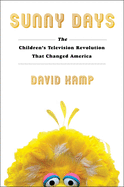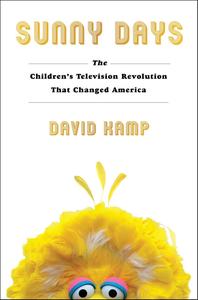
 The scene was set: in the 1960s, it was recognized that young children of color weren't keeping up academically with their white peers, and new studies were showing that the preschool years were more developmentally critical than educators had previously realized. Meanwhile, with the right enticement, toddlers were proving themselves capable of seemingly effortless learning. As Children's Television Workshop (CTW) cofounder Joan Ganz Cooney puts it in David Kamp's enchanting Sunny Days: The Children's Television Revolution that Changed America, "Every child in America was singing beer commercials. Now, where had they learned beer commercials?"
The scene was set: in the 1960s, it was recognized that young children of color weren't keeping up academically with their white peers, and new studies were showing that the preschool years were more developmentally critical than educators had previously realized. Meanwhile, with the right enticement, toddlers were proving themselves capable of seemingly effortless learning. As Children's Television Workshop (CTW) cofounder Joan Ganz Cooney puts it in David Kamp's enchanting Sunny Days: The Children's Television Revolution that Changed America, "Every child in America was singing beer commercials. Now, where had they learned beer commercials?"
In galloped Cooney and her team of visionaries to harness the power of television to address the learning gap between inner-city children and their white counterparts. Having secured both corporate and government funding and the services of a brilliant young puppeteer named Jim Henson, the CTW, working out of New York City, created Sesame Street, whose quick cuts and wowie-zowie vibe was filched from the popular sketch-comedy show Rowan and Martin's Laugh-In. Cooney and her collaborators, who saw Sesame Street as experimental, weren't convinced that the show would last more than one season.
Not only was Sesame Street an out-of-the-gate hit that featured television's first truly multicultural cast, but research suggested that kids who watched the show were indeed learning their ABCs and 123s. Other programs, segments and specials seeking to teach children academic basics and self-esteem-building skills followed, on public and commercial television, with the CTW's imprimatur and without it. Kamp covers the better known among these efforts, including The Electric Company, Zoom and Schoolhouse Rock! (He also honors the ground-laying work of Bob "Captain Kangaroo" Keeshan and, of course, Fred Rogers, who, it must be said, was no fan of Sesame Street's pacing and pratfalls.) By the time Free to Be... You and Me aired in 1974, "the Sesame Street model was now the paradigm," writes Kamp, "and the media literacy of small children was a given."
Kamp, author of The United States of Arugula: How We Became a Gourmet Nation, pins the end of the golden age of kids' TV on Ronald Reagan's election in 1980, which led to deregulation and less government money for children's programming. For readers of a certain generation, Sunny Days will have a thrilling flashback effect, like a fizzy nostalgia drink, and the book's archival photos only enhance the time-tripping experience. For millennial readers, Sunny Days will be both a captivating glimpse at a revolutionary time and a blueprint for what's possible with a little seed money, civic-mindedness, feathers and glue. --Nell Beram, author and freelance writer
Shelf Talker: David Kamp's effervescent book is a trip back in time to the birth of the Children's Television Workshop, which launched the golden age of kids' TV.

